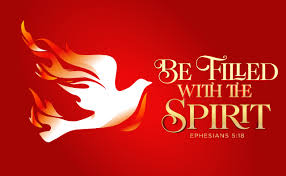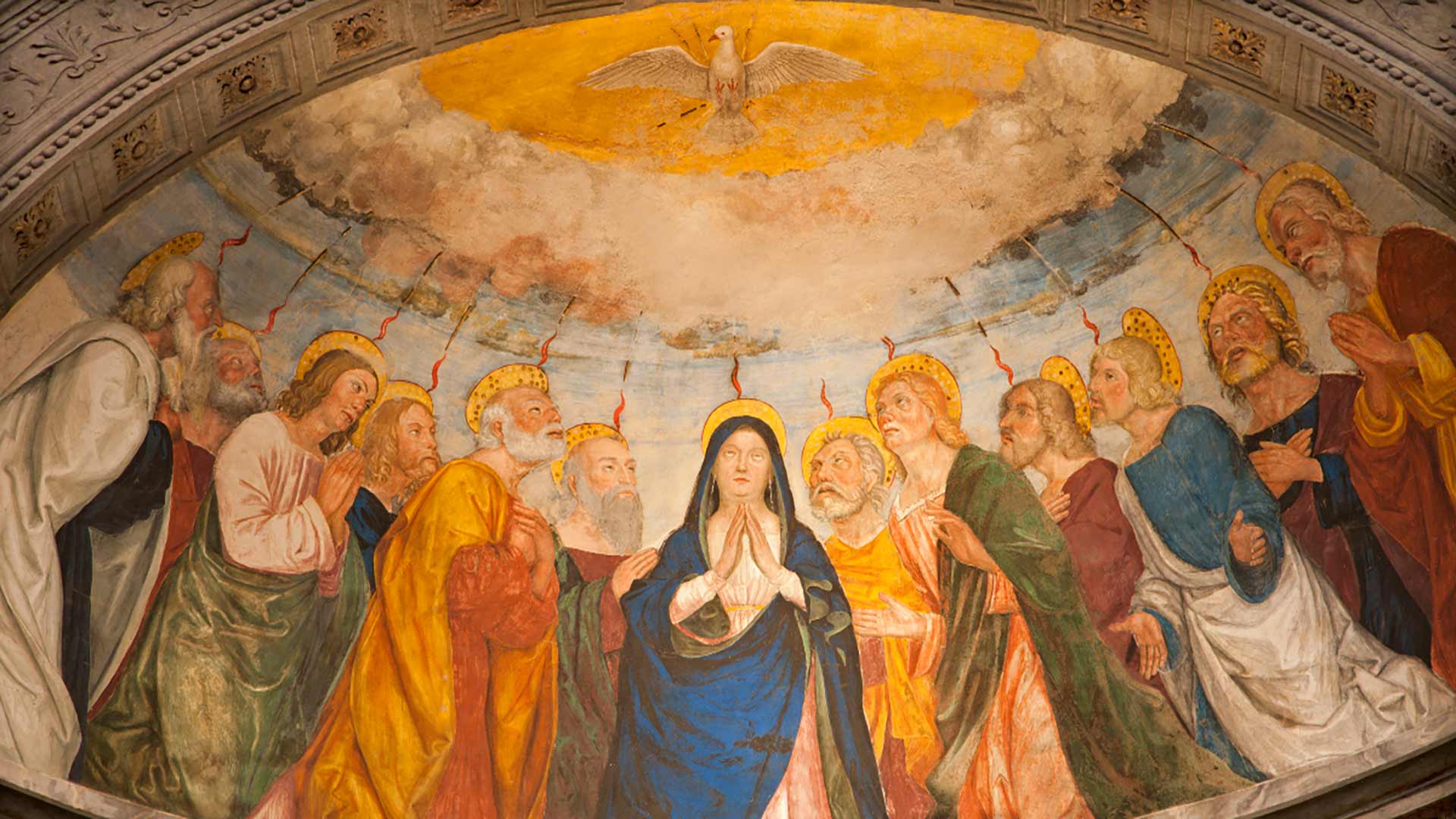Outpouring of the Holy Spirit
You will be amazed to see the profusion of Readings on the occasion of Pentecost. It truly parallels the great outpouring of the Holy Spirit! While the Day Mass always has the same text for the First Reading, the Second Reading and the Gospel change cyclically. Besides, there are special Readings for the Vigil of Pentecost: four alternative First Readings, a Second Reading and Gospel that remain constant across the cycles. The Vigil indeed fills us with the joy of anticipation!
Pentecost very well deserves a trumpet blast, as it marks the glorious Birth of the Church. Just as a close-knit family gathers together in excitement even before the arrival of a baby, the Church imagines the community drawing together for the liturgy of the Vigil and virtually waiting on for a different liturgy at the Day Mass. Such is the emotion that goes with any birth, and all the more so with the mystery of our spiritual birth as a faith community.
Let’s begin with the Vigil Readings and note their aptness. Gen 11: 1-9 recounts humankind’s proud attempt to build a Tower that would reach God, and how God punished such insolence by confounding their speech. In contrast, at Pentecost those humble and faithful disciples were rewarded with the gift of tongues, the ability to communicate in languages unknown to them (xenoglossia or xenolalia).
The second alternative Reading (Ex 19: 3-8) refers to the moment when Moses had summoned his people to seal their covenant with the Lord. As he went up the mountain, his people down below witnessed thunder and lightning, a thick cloud and a very loud trumpet blast. This foreshadows the New Covenant given to the disciples gathered in the Upper Room. They too experienced fire and sound at the descent of the Holy Spirit.
The third possible Reading (Ezek 37: 1-14) recalls the valley of dry bones that was enlivened by God’s Spirit. It prefigures the life-giving effects of the Holy Spirit on the spiritual life and mission of His Church.
The last substitute Reading (Joel 2: 28-30) harks back to the time when God promised the Prophet that He would pour out his Spirit upon all flesh, letting people of all ages and ranks prophesy, dream of the future, see visions and wonders. This was fulfilled when the disciples gathered together with the Mother of God in the Cenacle.

And talking of hope, St Paul in the Second Reading (Rom 8: 22-27) utters a paean to the Holy Spirit. He assures us that the Paraclete ‘intercedes for us with sighs too deep for words.’ In this valley of tears, where our life is so full of care and we have no time to stand and stare, when we and the whole of creation groan in travail, the Holy Spirit will renew the face of the earth. When this will happen we know not, but we must contribute to realise God’s Plan.
Finally, in the Gospel text for the Vigil Mass (Jn 7: 37-39), Jesus proclaims Himself as the Living Water. He announced this on the last and most solemn day of the Feast of the Tabernacles, an annual event that remembered the law and the covenant. It was one of the three feasts that the Jews observed, by sprinkling the altar with the waters of Siloam, in remembrance of that which had sprung out from the rocks of Mount Horeb. Post-Pentecost, the water of the Holy Spirit would flow continually.
As regards the Day’s Readings: in two blogposts we commented on that invariable First Reading (Acts 2: 1-11), ('Ecstatic and Fiery': https://rb.gy/y5a7f5 and 'Pentecost and Proclamation': https://rb.gy/4c0p3i ). Now we shall go straight to the Second Reading (Gal 5: 16-25) of Year B. Here, St Paul advises his community to live by the Spirit and refrain from gratifying the desires of the flesh. ‘The Spirit produces love, joy, peace, patience, kindness, goodness, faithfulness, humility and self-control.’ On receiving these gifts, so very different from what the world has to offer, we are invited to give up our old ways and live by that gift which has made us new.
Is this possible? The Evangelist (Jn 14: 15-16) quotes from Our Lord’s last discourse, at the Last Supper: ‘If you love me, you will obey My commandments.’ Yet, we are not alone in this divine enterprise; Jesus has promised us a Helper par excellence, the Holy Spirit, ‘who will stay with you for ever.’ The Holy Spirit, whom the Father has sent in His Son’s Name, will teach us everything and make us remember His commandments. All we have to do is believe and trust in Him.
For the Lord’s work to happen through us who are the Church, the Holy Spirit will instruct us opportunely. His outpourings will continue until the end of time.
